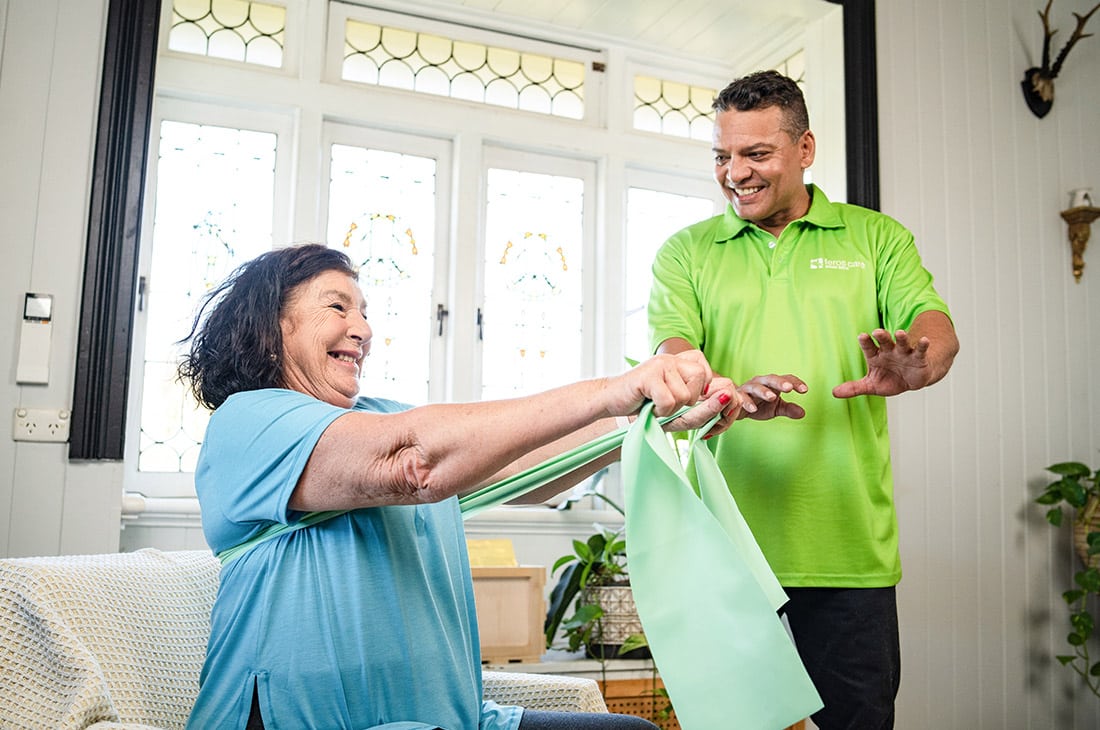How In Home Care Givers Address the Unique Challenges and Emotional Demands of Family Members Looking For Support for Their Relatives
At home caregivers play a crucial role in navigating the intricacies faced by family members seeking assistance for their loved ones. By comprehending one-of-a-kind household dynamics and offering customized psychological assistance, these professionals not just address prompt care needs but likewise cultivate a setting of depend on and open communication (ndis plan manager).
Comprehending Family Members Characteristics
Recognizing household characteristics is crucial for offering reliable in-home care, as each household runs within an one-of-a-kind set of partnerships and communications. These dynamics include different aspects, consisting of interaction styles, functions, and class structure that affect exactly how care is provided and received. The caregiver must acknowledge these aspects to make sure that treatment strategies align with the household's worths and expectations.
Different families may display distinctive patterns of communication, such as collaborative methods or hierarchical frameworks. In some households, a primary decision-maker might hold substantial influence, while in others, decisions may be much more autonomous. Recognizing these patterns assists caretakers tailor their methods to fit the family's certain needs.
Additionally, social backgrounds play a vital function fit family members dynamics. Caretakers ought to be culturally competent, recognizing and appreciating varied methods and beliefs that might impact treatment choices.
Inevitably, a thorough understanding of household dynamics assists in enhanced interaction, fosters depend on, and boosts the caregiver's capacity to sustain the family successfully. By recognizing the detailed internet of obligations and connections, caretakers can produce an encouraging atmosphere that promotes well-being for both the private obtaining treatment and the family in its entirety.
Giving Emotional Assistance
Supplying emotional support is a vital element of at home treatment that significantly improves the well-being of both the individual getting treatment and their relative. In the context of caregiving, emotional support includes energetic listening, empathy, and validation of feelings. Caretakers are trained to acknowledge the emotional struggles that families face, such as seclusion, anxiousness, and sense of guilt, and to give a compassionate existence that eases these worries.
By cultivating open interaction, caregivers produce a secure space for family participants to reveal their concerns and problems. This discussion not just encourages emotional launch however also reinforces count on between the household and the caregiver. In addition, caregivers can use sensible approaches to assist families manage tension and promote durability.

Inevitably, the emotional assistance given by in-home caretakers enhances the lifestyle for both clients and their households, advertising a more caring and understanding caregiving environment. This all natural method ensures that emotional requirements are attended to alongside physical health and wellness considerations.
Handling Daily Treatment Tasks
Taking care of day-to-day treatment jobs is an essential element of in-home care that ensures people receive the assistance they need to keep their health and wellness and freedom. Caregivers play an essential role in aiding with activities of day-to-day living (ADLs), that include showering, clothing, brushing, and meal prep work. By handling these obligations, caregivers assist relieve the psychological and physical concerns that family members might encounter while taking care of their loved ones.
Along with individual care, caregivers are additionally tasked with medication management, ensuring that clients follow prescribed routines and dosages. This oversight is essential for preserving wellness and protecting against unfavorable impacts from missed out on or wrong drugs. Caregivers typically aid with movement, offering assistance for customers relocating around their homes, thereby reducing the threat of falls and enhancing overall safety.

Fostering Open Communication
Efficient monitoring of everyday care jobs typically rests on the quality of communication in between caretakers, customers, and their families. Open interaction cultivates a setting where issues, choices, and responses can be easily traded, guaranteeing that care is customized to meet individual requirements. Caregivers must focus on normal check-ins with both customers and their families, helping with conversations that resolve any kind of issues or changes in care requirements.
Using different communication techniques-- such as in person conferences, phone telephone calls, and created updates-- can boost understanding and provide families with satisfaction. It's crucial for caretakers to proactively pay attention, showing empathy and respect for the emotional landscape of the family members. Encouraging questions from member of the family can likewise assist clarify care strategies and enhance the caregiver's commitment to transparency.
Moreover, maintaining open lines of interaction enables caregivers to acknowledge and respond immediately to any type of shifts in a client's health and wellness status or psychological wellness. This proactive strategy not only strengthens the caregiver-client vibrant however also empowers family members to take part proactively in the care process. Eventually, promoting open communication is crucial for improving the quality of in-home treatment and promoting an encouraging environment for all involved.
Building Depend On and Relationships
Count on is the keystone of successful at home care, as it establishes a structure for significant relationships in between caregivers, customers, and their families. Structure this count on calls for consistent, clear interaction and an authentic dedication to the well-being of those included. Caretakers should demonstrate reliability with punctuality, adherence to care plans, and responsiveness to the demands and choices of clients.
To cultivate count on, caretakers need to participate in active listening, making sure that households really feel listened to and understood. This involves not just addressing immediate worries yet also anticipating future needs, therefore empowering households and boosting their feeling of control. Developing connection with shared experiences and considerate communications can additionally strengthen these relationships.
Additionally, caretakers have to be educated to acknowledge and deal with the emotional complexities faced by family members. By revealing compassion and concern, they can minimize unpredictabilities and concerns, reinforcing trust fund. Regular updates and check-ins with relative can additionally enhance openness, enabling them to really feel involved and informed concerning their enjoyed one's treatment.
Inevitably, constructing count on and nurturing relationships in in-home care is a collective process that considerably affects the top quality of treatment given, cultivating an encouraging environment that benefits every person involved.
Conclusion
In-home caretakers play a crucial function in dealing with the one-of-a-kind obstacles and psychological demands of families. By click here for info understanding family characteristics, offering emotional assistance, and fostering open communication, caregivers boost the total caregiving experience. Their ability to take care of everyday care tasks while constructing count on and solid connections cultivates an encouraging environment for clients and their family members. Inevitably, the caring engagement of caregivers substantially adds to enhanced health and strength for those browsing the intricacies of caregiving.
Recognizing family members characteristics is essential for providing effective in-home care, as each family members runs within a distinct collection of relationships and interactions.Supplying emotional assistance is an essential component of in-home care that substantially enhances the wellness of both the specific getting treatment and their family members. By read review taking on these obligations, caretakers help alleviate the physical and emotional concerns that family members might face while caring for their liked ones.
Efficient management of everyday care tasks usually pivots on the high quality of communication in between caregivers, customers, and their households - in home caregivers.Depend on is the cornerstone of effective in-home care, as it establishes a structure for significant relationships between caretakers, clients, and their households